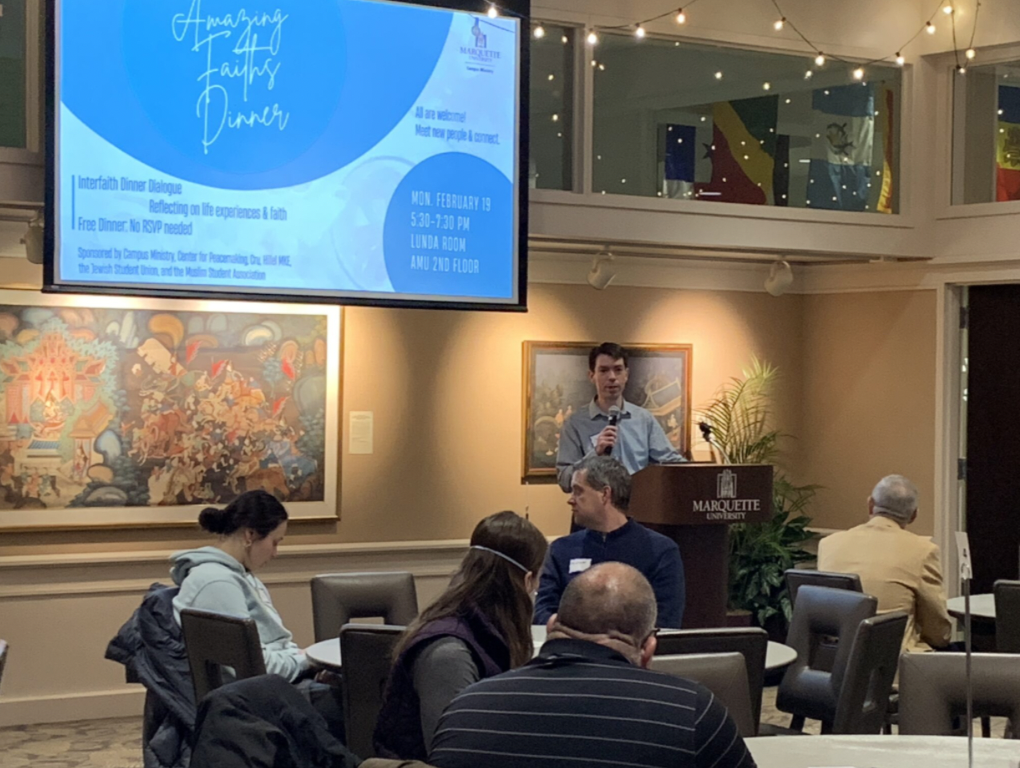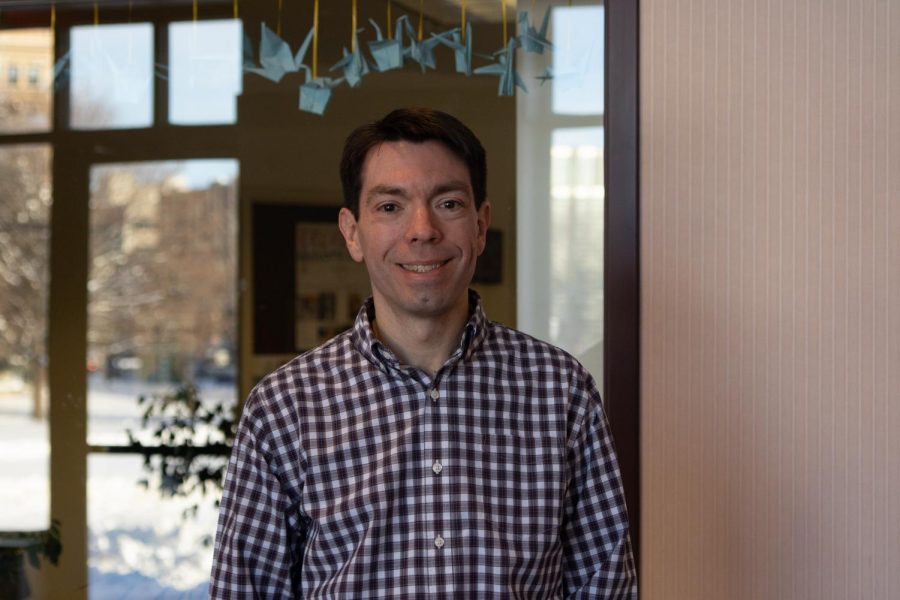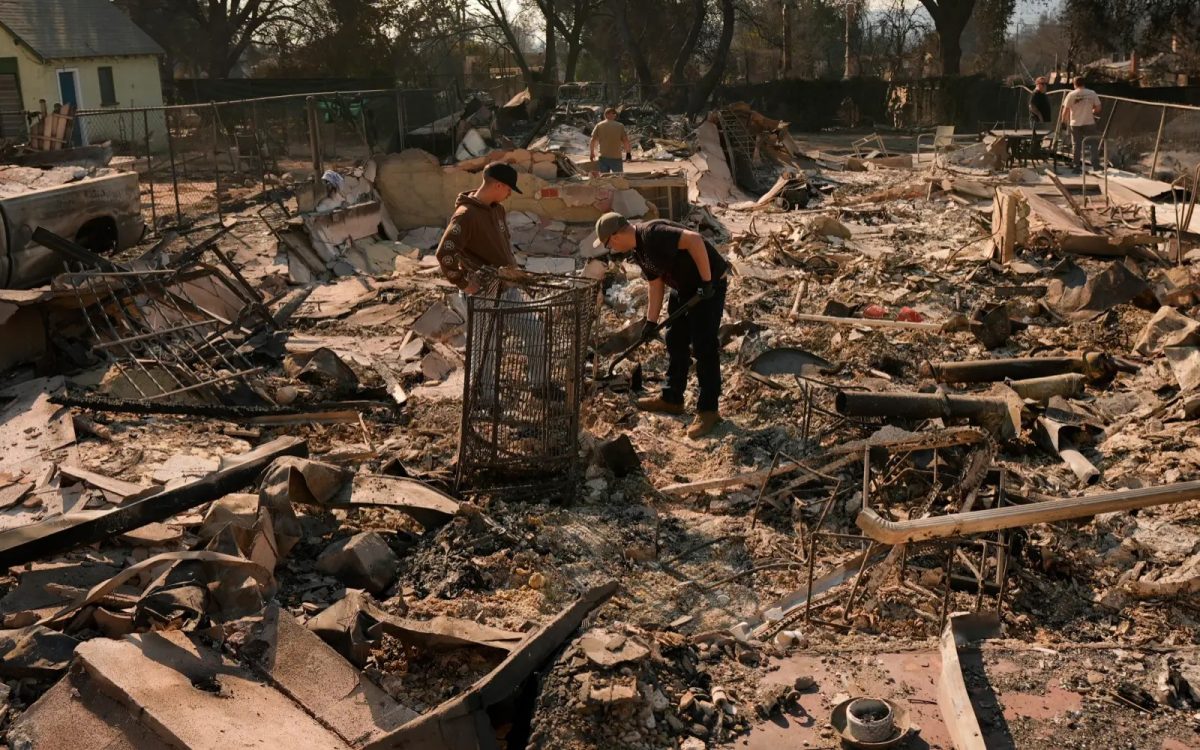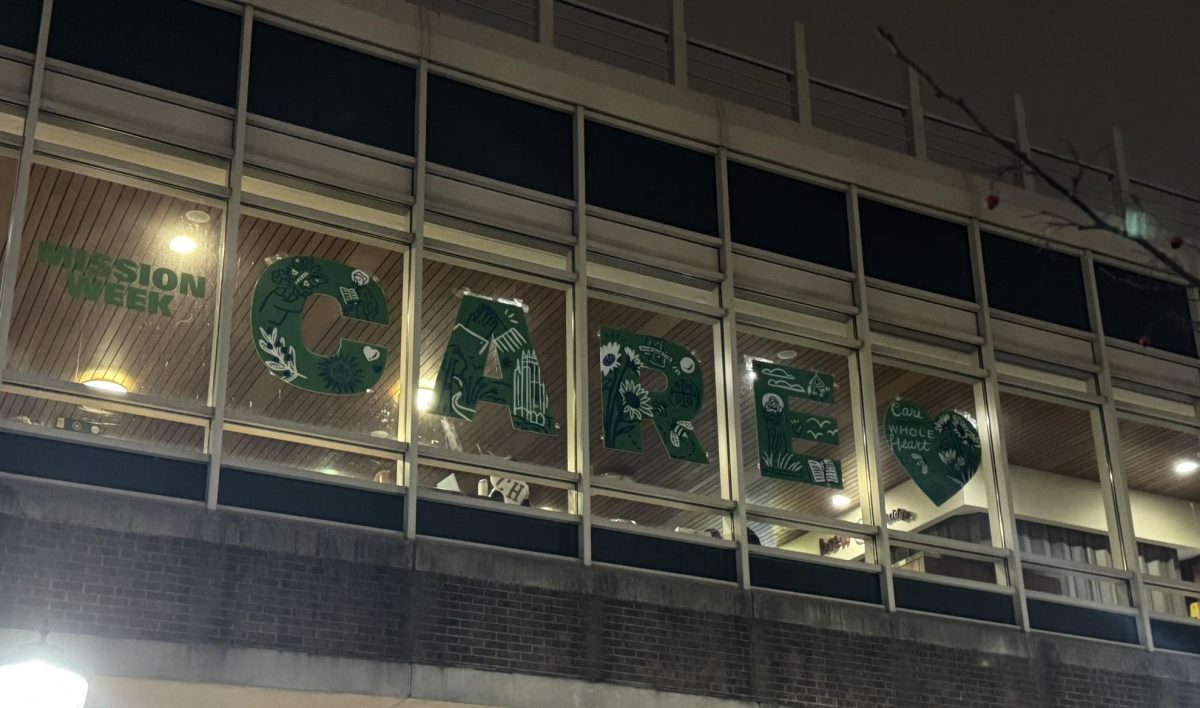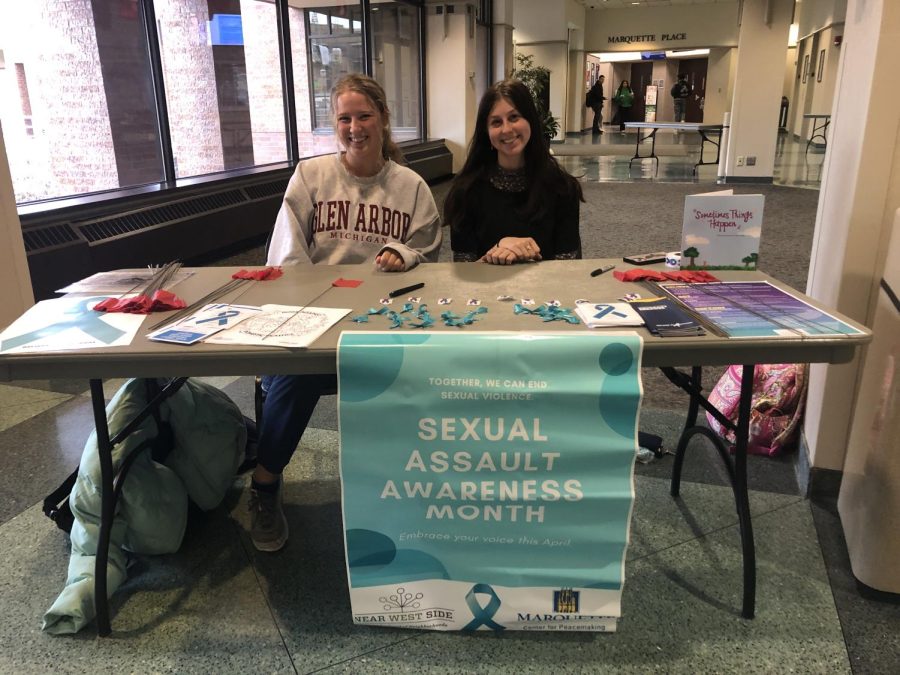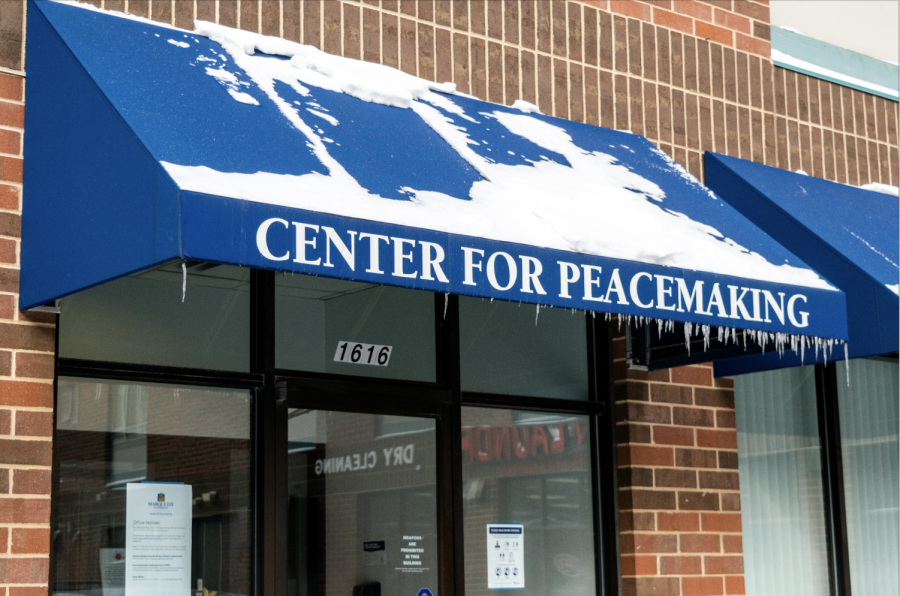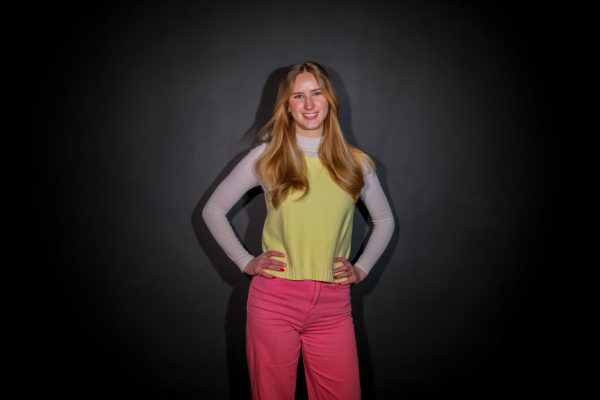Members of the Marquette community gathered in the Lunda Room of the Alumni Memorial Union Feb. 19 to indulge in free Mediterranean food and open up about how their faiths have affected their daily lives through conversations of Interfaith Dialogue at the “Amazing Faith Dinner.”
Organizations such as the Interfaith Conference of Greater Milwaukee, Campus Ministry, the Center for Peacemaking, Marquette’s Jewish Student Union and Marquette’s Muslim Student Association sponsored the “Amazing Faith Dinner.”
Irfan Omar, a professor in the Department of Theology said the definition of interfaith dialogue is communication between people of different faiths, religions or traditions that are open, honest, civil and respectful and its goal is to build mutual respect. It does not involve debate, forcing agreement, attacking other faiths or trying to “convert” others.
The Amazing Faith Dinner started at 5:30 p.m. when students were asked what faith, if any, they belonged to and were then assigned a table. This was to ensure that there would be diverse beliefs at every table. Each table also had a moderator that was either a staff member from Marquette or a member of the Interfaith Conference of Greater Milwaukee.
Ahmed Quereshi, executive director of the Interfaith Conference of Greater Milwaukee, said it is important for adults to engage with interfaith dialogue because it helps people debunk stereotypes they may have about others.
There was a brief introduction to what students could expect at the event given by Steve Blaha, interim director of Campus Ministry and Quereshi.
Quereshi said that rules for the dinner were as follows: the moderator will not participate in dialogue but will hand one of 40 pre-prepared questions about how faith plays a role in one‘s life to a person at the table once it is their turn to speak. No two people will answer the same question, and each person is allowed up to four minutes of uninterrupted speaking time to answer. Each person is allowed time to reflect on the question they are asked once they receive it.
Tables were then dismissed for dinner and to start the conversation.
University President Michael Lovell spoke at the beginning of the meeting and interfaith dialogue is important because it helps students at Marquette feel like they’re supported and cared for.
“We value your faith here at Marquette University, we want you all to feel welcomed and that’s part of what tonight is all about,” Lovell said.
“The only way that we’re going to have a civic society, a society in which people can lean to get along with one another is if people deal with people on a personal basis,” Quereshi said.
Grace Sviland, a first-year in the College of Arts & Sciences, said that she has never been to an event practicing interfaith dialogue before, but heard about the Amazing Faith Dinner by seeing a flyer and from a friend. Sviland said she has been born and raised Catholic.
“I loved (the experience). It’s a great opportunity to meet people of different faiths and have really good connection through dialogue,” Sviland said. “I felt very enthusiastic to come here and be able to not only express how God has affected my life, but see how a god or higher power has affected others as well.”
Miriam Bush, a first-year in the College of Arts & Sciences said she is used to sharing experiences about her faith from high school and wanted to continue to have a space for that in college. Bush said she is Jewish.
“The thing about interfaith dialogue is that it lets you see similarities and understand other people better. That kind of combats societies tendency for division,” Bush said.
Both Bush and Sviland said they would return to an event like this in the future.
Quereshi said that the Interfaith Conference of Greater Milwaukee is planning another dinner dialogue event in April and partnering with the Marquette Political Science Department and Center for Civic Dialogues.
This story was written by Ellie Golko. She can be reached at Ellie.golko@marquette.edu.


